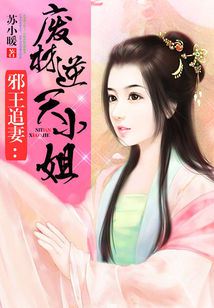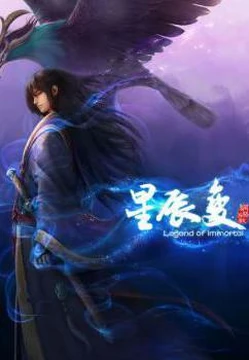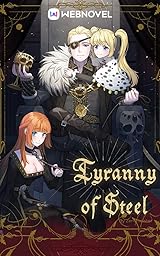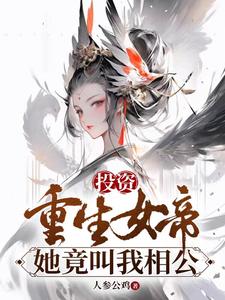The Story in 3 Sentences
A lethal 21st-century assassin is reborn into the body of Su Manor’s despised and powerless Fourth Miss, forced to navigate a world where her new identity is synonymous with weakness.
Her path collides with Nangong Liuyun, the terrifyingly powerful and possessive “Demonic King,” who, against all odds and societal expectation, becomes utterly obsessed with her, igniting a relentless, often toxic, chase.
What begins as a desperate struggle for survival and independence against a backdrop of cultivation and court intrigue transforms into a sprawling, millennia-spanning saga where their fates, for better or worse, become irrevocably intertwined.
Why It Stands Out
1. The Unapologetically Toxic Romance Blueprint
This novel didn’t just popularize the yandere, possessive male lead in English-translated webnovels; it became the genre’s controversial textbook. Nangong Liuyun’s brand of “love”—marked by choking, emotional manipulation, and life-or-death ultimatums—is presented not as a flaw to overcome, but as an intrinsic, even desirable, part of his allure. It stands out because it leans fully into its own problematic nature, creating a love story that is as infuriating as it is undeniably compelling for a specific audience, setting a precedent for countless imitators who followed.
2. The Cultivation Grind Meets Slice-of-Life Absurdity
Amidst the high-stakes battles and world-ending threats, the narrative frequently derails into bizarrely mundane or comedic detours, like spending sixty chapters meticulously splitting open rocks for crystals or characters obsessively commenting on each other’s physical beauty. This jarring tonal shift, from epic xianxia to domestic farce, creates a unique, often unintentionally hilarious, reading experience that distinguishes it from more serious, plot-driven cultivation epics. The sheer absurdity becomes a feature, not a bug.
3. A Protagonist Who Defies (and Embodies) the Trope
Su Luo is introduced as a shrewd, independent assassin, a promise the story constantly undermines. She oscillates between moments of cunning brilliance and frustrating passivity, often rendered “stupid” by the overwhelming presence of her male lead. She stands out because she is a walking contradiction: a supposedly strong female lead who frequently needs saving, a modern woman trapped in an ancient world who rarely challenges its most regressive norms, making her a fascinating, if deeply flawed, study in narrative dissonance.
Characters That Leave a Mark
There’s Feng Ling – Nangong Liuyun’s ever-present, stoic bodyguard, a silent pillar of lethal efficiency who serves as a constant, grounding presence amidst the chaos, his loyalty to his master absolute and unwavering.
You’ll meet Xi Su, who is Su Luo’s scheming and perpetually jealous fifth sister, embodying the petty, antagonistic family dynamics that plague the protagonist’s early life, her hatred a constant, predictable thorn in Su Luo’s side.
And Ouyang Yunqi? They’re the one who emerges as a complex rival and later, a powerful ally from the Demon Clan, their interactions with Su Luo layered with respect, rivalry, and a history that adds significant depth to the story’s later, more cosmic arcs.
The Flaws Fans Debate
The male lead’s behavior is not romantic; it’s abusive, with choking and emotional blackmail presented as expressions of love.
The plot is incredibly bloated and repetitive, stretching simple ideas over hundreds of chapters, leading to severe pacing issues.
Character development is shallow, with most characters, including the protagonist, acting in one-dimensional, predictable ways defined by a single trait.
Must-Experience Arcs
Ch. 1–100: The Waste to Wonder Arc – Su Luo sheds her “good-for-nothing” label in the Su Manor, using her modern intellect and assassin skills to outwit her family and enemies, setting the stage for her rise.
Ch. 900–1000: The Ouyang Yunqi Introduction Arc – The story’s scope dramatically expands with the arrival of Ouyang Yunqi, shifting the focus from local conflicts to larger, inter-clan and demonic world politics, introducing key future allies and enemies.
Ch. 2500–2600: The Dragon Realm Crisis Arc – Su Luo and her companions face off against ancient dragons, showcasing the peak of her cultivated power and the high-stakes, world-threatening dangers that define the novel’s final act.
Killer Quotes
“Your Highness Prince Jin is very calculating, laying down such a great scheme.”
“Whos blushing, you big-headed demon, what piece of flesh on your body have I not seen?”
Cultural Impact
It is one of the most widely read and recognized Chinese webnovels in the English-speaking online community, consistently ranking high on platforms like NovelUpdates.
The donghua adaptation brought its characters and controversial romance to an even wider global audience, spawning countless fan edits and discussions.
It is frequently cited, both positively and negatively, in online discourse as the quintessential example of the “toxic male lead” trope in romance webnovels, becoming a cultural reference point for the genre.
Final Verdict
Start Here If You Want:
A sprawling, addictive saga that you can sink thousands of chapters into without demanding deep intellectual engagement.
The blueprint for the modern, possessive, yandere male lead in romance webnovels, for better or worse.
A story that masterfully blends high-octane cultivation battles with utterly bizarre, slice-of-life comedic moments.
Study If You Love:
Analyzing the evolution and enduring appeal (or notoriety) of toxic romance tropes in popular web fiction.
The mechanics of serialization and how authors stretch narratives to extreme lengths in the webnovel format.
The cultural translation of Chinese xianxia tropes and romantic ideals for a global, primarily Western, audience.
Avoid If You Prefer:
Healthy, egalitarian romantic relationships where consent and mutual respect are non-negotiable.
Tight, well-paced plotting without significant filler or repetitive scenarios.
Strong, consistently independent female protagonists who drive the narrative without being overshadowed or undermined by their love interest.





